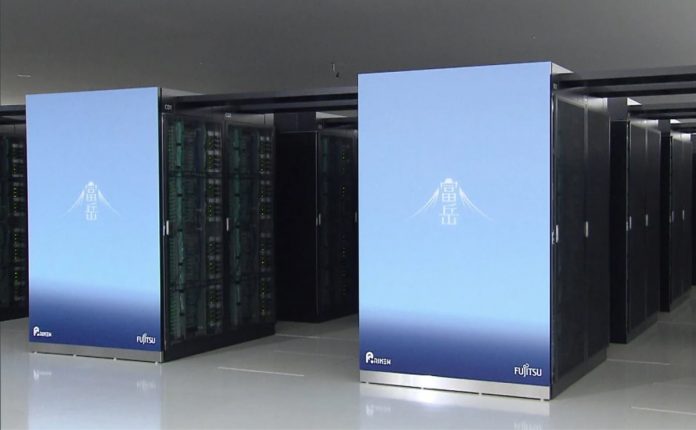Fujitsu and the Tokyo Medical and Dental University (TMDU) today announced a new technology that uses AI to discover new causal mechanisms of drug resistance in cancer treatments from clinical data.
Leveraging the world’s fastest supercomputer “Fugaku,” the new technology enables high-speed calculation of 20,000 variables of data within a single day and allows for the discovery of previously unknown causal relationships relating to drug resistance in cancer cells from 1,000 trillion different possibilities.
Supercomputer Fugaku is being jointly developed and improved by RIKEN and Fujitsu with the goal of creating a versatile and easy-to-use supercomputer that achieves the worldʼs top level of performance with low power consumption for the purpose of resolving various issues faced by modern society and priority issues in science and technology fields, as well as utilization in a broad range of fields including Big Data and AI.
Fujitsu and TMDU applied this technology to gene expression level data obtained from cancer cell lines in order to analyze drug resistance against anticancer drugs, and succeeded in extracting a new causal mechanism of a previously unknown gene that suggests a cause of resistance to lung cancer drugs. The new technology is expected to contribute to the acceleration of drug discovery and the realization of cancer therapies individualized for each patient.
The technology was developed under the theme of “elucidation of the cause and diversity of cancer using large-scale data analysis and AI technology,” an initiative supported by TMDU, Kyoto University and Fujitsu as part of the supercomputer Fugaku achievement acceleration program.
Even if a patient receives a targeted cancer drug therapy, the appearance of drug-resistant cancer cells represents an ongoing threat to full remission. The mechanism for how certain cancers become drug resistant remains unclear, however, and researchers continue to work on new methods of analysis that shed light on how cells that have multiple driver mutations acquire drug resistance. In drug development and clinical trials involving drug repositioning , it is important to identify patients for whom drugs are anticipated to have an effect. However, the effectiveness of drugs may differ depending on the organ and the individual and variations in gene expression, and the number of patterns combining expression levels of multiple genes exceeds 1,000 trillion. A comprehensive search of all 20,000 genes in the human genome would thus take more than 4,000 years with a conventional computer and finding ways to accelerate the process represents a major challenge.
Fujitsu implemented parallel conditional and causal algorithms to maximize computational performance with the supercomputer Fugaku to analyze the human genome within a timeframe needed for practical research. By utilizing Fujitsu’s “Wide Learning” AI technology to extract combinations of potential genes relating to the emergence of drug resistance based on statistical information, Fujitsu developed a novel technology that makes it possible to conduct a comprehensive search within a day.
As a result of running data of the Dependency Map (DepMap)portal using this technology on the supercomputer Fugaku, Fujitsu and TMDU were able to search the entire human genome for conditions and causality within a single day and determine the genes that cause resistance to drugs used to treat lung cancer.
Prof. Seiji Ogawa, Graduate School of Medicine, Kyoto University commented:
Promising technologies like Fujitsu’s AI technology for scientific discovery (“Wide Learning”) may one day contribute to the discovery of biomarkers, which represent an area of growing interest in drug development. The key to the success of new drug development is to identify patients who are expected to benefit from new drugs and conduct clinical trials. If the marker that predicts who will benefit from the drug is known, the cost of clinical trials can significantly be reduced and the probability of success by conducting individual clinical trials can be increased. From this point of view, pharmaceutical manufacturers and others are expected to be very interested in this technology. The fact that it has been implemented using Fugaku has also raised expectations.
Moving forward, Fujitsu and TMDU will conduct a multilayered and comprehensive analysis that combines various data including time axis and location data with the aim of accelerating medical research, including in the field of drug efficacy, as well as to shed light on the causes of cancer.

